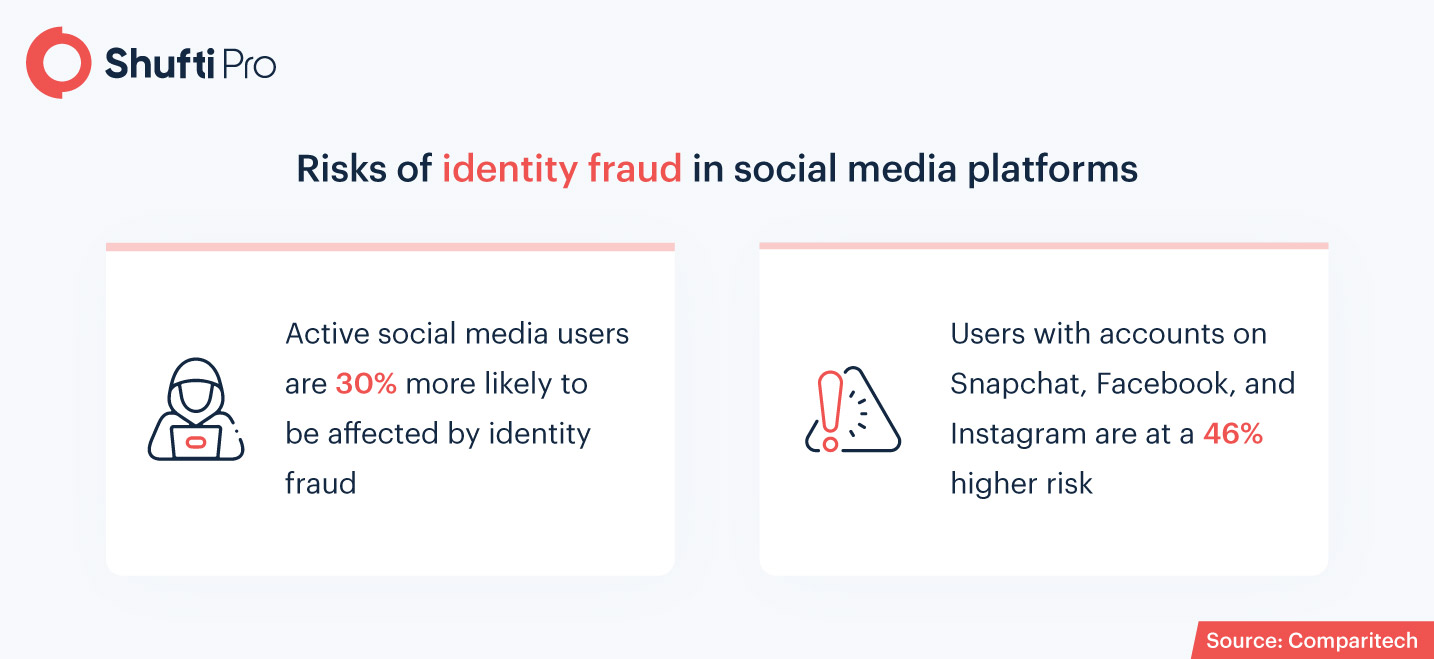Blog
What are chargeback frauds and what do they mean for businesses?
The world we live in no longer seems to be honest and fair. A large number of individuals are par...
 Explore More
Explore More
Blog
4 WAYS AI is Shaping KYC and AML Compliance for Businesses
The role of Artificial Intelligence (AI) is rapidly increasing in businesses and the emergence of...
 Explore More
Explore More
Blog
5 Predictions on the Future of Digital KYC and eKYC
It’s 2023. Welcome to the day and age of digital KYC verification. From multiple copies of ID car...
 Explore More
Explore More
Blog
ID Verification for High-Potential Digital Fraud Cases
Instances of digital frauds and payment scams are highly damaging for banks and financial institu...
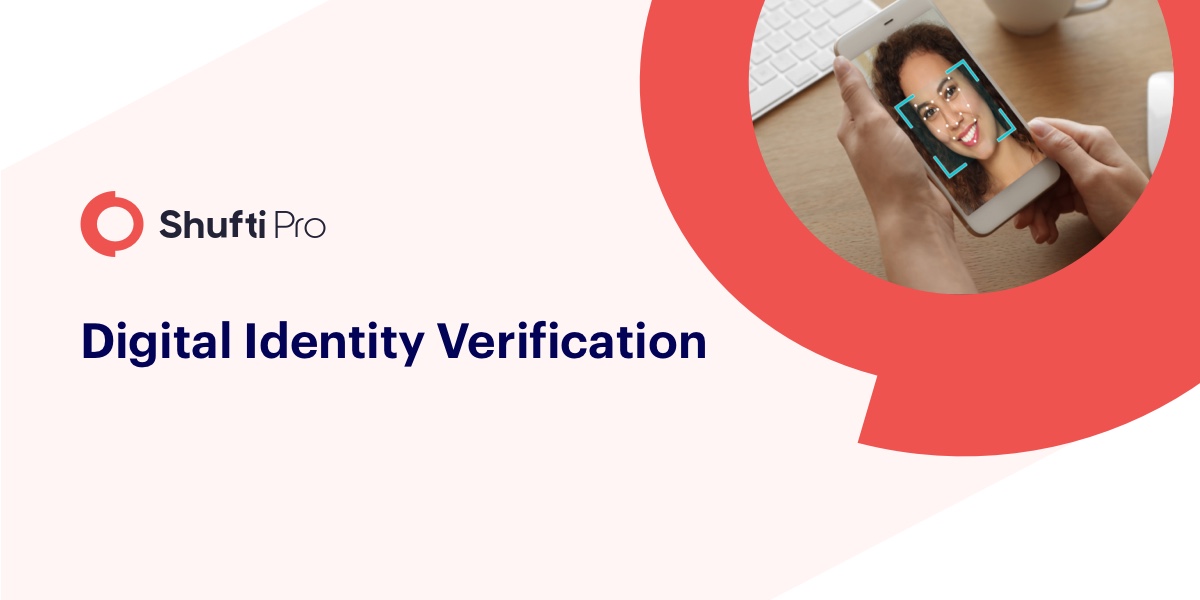 Explore More
Explore More
Blog
Designing for the World: UX, Automation & Inclusivity with Lisa Kleinman
About Lisa Kleinman
Dr. Lisa Kleinman, Ph.D. is a UX leader, researcher and design strategist who...
 Explore More
Explore More
Blog
Customer Due Diligence – Risk Scoring of Fraudsters to Prevent Crimes
As per the research of The Journal of Accountancy, fraudsters carry out crimes for two reasons: n...
 Explore More
Explore More
Blog
OCR technology for businesses – Its applications and benefits
Optical Character Recognition (OCR) technology provides a business solution that automates data e...
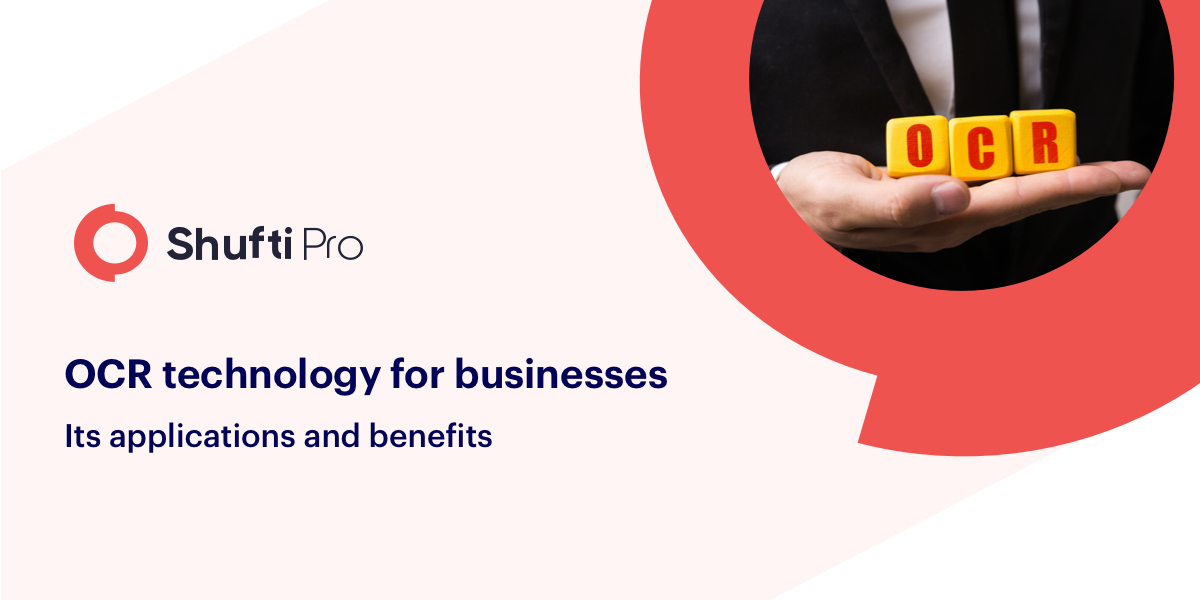 Explore More
Explore More
Blog
How can AML play a role to impede the financing of terrorism?
Money Laundering and Terrorism Financing are global issues and there is no dispute regarding it. ...
 Explore More
Explore More
Blog
The Most Common Cryptocurrency Scams and the Role of e-IDV
Cybercrimes and scams are rampant across the digital space, and cryptocurrency is no different. W...
 Explore More
Explore More
Blog
Impact of California Consumer Privacy Act on Online Businesses
California consumer privacy act has been revolutionizing consumer data regulations. The act was p...
 Explore More
Explore More
Blog
A Comprehensive Guide to KYC and AML Regulations in the UK
The increasing number of financial crimes in the UK calls for stringent measures to safeguard the...
 Explore More
Explore More
Blog
Crypto as a Virtual Safe Haven for Russians Amid Sanctions
The Russia-Ukraine conflict has had some serious effects on the global financial landscape. While...
 Explore More
Explore More
Blog
AML Screening for Online Gambling Platforms – Placing the Bets on Regulatory Compliance
With technology evolving every day, online gambling is one of the sectors that has revolutionized...
 Explore More
Explore More
Blog
5 Things Businesses Should Know about PEP Screening
Regulators levy penalties when compliance programs fail or companies have insufficient compliance...
 Explore More
Explore More
Blog
A Basic Guide to Intelligent Character Recognition (ICR)
With technological advancement, businesses are finding new ways to leverage digital sol...
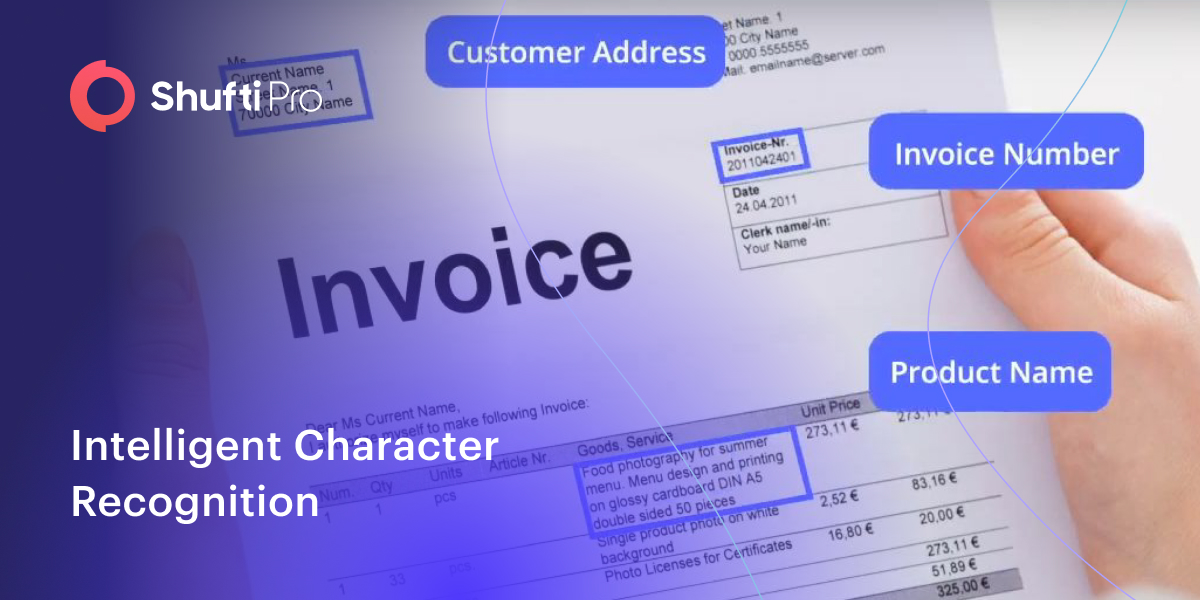 Explore More
Explore More
Blog
FATF’s Travel Rule: A New Dawn of Regulations for Virtual Asset Services
Here at the start of 2021, there is much uncertainty regarding the coronavirus situation, whether...
 Explore More
Explore More
Anti Money Laundering, Blog, Business Technology, Financial Crime / AML, Identity & KYC
Global Economies are joining forces with FATF against money laundering
Financial Action Task Force (FATF) has been very keen on eliminating financial crime (money laund...
 Explore More
Explore More
Blog
Complete Guide to KYC Compliance Regulations in 2025
Introduction
KYC obligations are no longer just a banking headache. In 2025, crypto exchanges, on...
 Explore More
Explore More
Blog, Identity & KYC
Why You Need To Know Your Buyer
Online payments are fast replacing cash transactions with the top payment companies harboring 1bi...
 Explore More
Explore More
Blog
AML Compliance for Luxury Goods Market – How Shufti can Help
Money laundering using high-value goods such as jewelry, yachts, motor vehicles, watches, fine ar...
 Explore More
Explore More
Blog
Post-pandemic eCommerce Landscape Calling for Robust ID Verification Solution
During the coronavirus pandemic, the e-commerce industry has witnessed a significant increase in ...
 Explore More
Explore More
Blog
Adverse Media Screening Requirements and Why Do FIs Need It?
The financial services industry is under a lot of regulatory requirements recently, and for all t...
 Explore More
Explore More
Blog
Video KYC Onboarding: Fintechs meeting KYC compliance with video identifications
The Financial industry is introducing a digital revolution globally. The term Fintech corresponds...
 Explore More
Explore More
Blog, Online Marketplace
The Importance of Know Your Customer for Crowd Funding and ID Verification Service
In today’s world where most business and financial transactions are taking place online, the impo...
 Explore More
Explore More
Blog
Top 5 Payment Trends Transforming the Commerce Sector in 2021
Financial markets across the globe saw many unpredictable changes due to the pandemic last year. ...
 Explore More
Explore More
Blog
Know Your Investor (KYI) – Identifying and Eliminating Russian Sanctions Evaders
For quite some time, wealthy Russian businessmen and oligarchs have been investing their money in...
 Explore More
Explore More
Blog
COVID-19 and Travel & Tourism Industry – What Opportunities Await Post-Pandemic?
The world is completely exhausted with the COVID-19 pandemic. The corporate sector has lost enoug...
 Explore More
Explore More
Blog
Reshaping Travel and Tourism with Instant Facial Recognition
Few technologies have sparked much debate as much as facial recognition. Today, it is considered ...
 Explore More
Explore More
Blog
Marketing Firms embracing KYC Services for Better service Delivery
Browsing through your Facebook newsfeed and you come across one of ‘Those’ friends – “Hey P...
 Explore More
Explore More
Blog
How can you prepare for AML Compliance – Ultimate AML Guidelines For Starters
Anti Money Laundering Compliance, commonly known as AML Compliance, is something that banks and f...
 Explore More
Explore More
Blog
Investor Onboarding | Navigating the Challenges of Digitization
Private market companies are setting their sights on retail investors and exploring technology an...
 Explore More
Explore More
Blog
How to Combat Document Forgery in 2025 and Beyond
Why This Update Matters
Digital document forgery is no longer a fringe threat it strikes every fi...
 Explore More
Explore More
Blog
How to protect your online gaming platform from ID frauds?
Gone are the days when online gaming was only restricted to LAN parties. With the development of ...
 Explore More
Explore More
Blog
OCR Vs. ICR: The Key Differences that Businesses Need to Know
Financial institutions need to have reliable and efficient data management. With such a system, t...
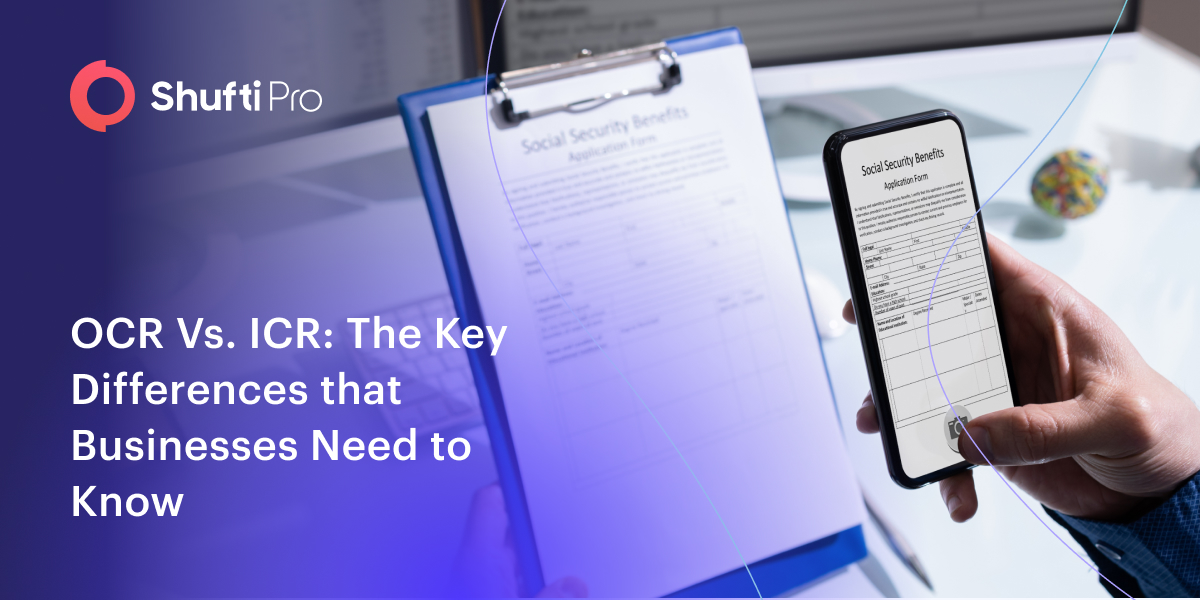 Explore More
Explore More
Blog
Shufti’s Journey Builder: Designing Identity Verification Made Simple
As financial regulations around the world become more complex and ever changing, businesses like ...
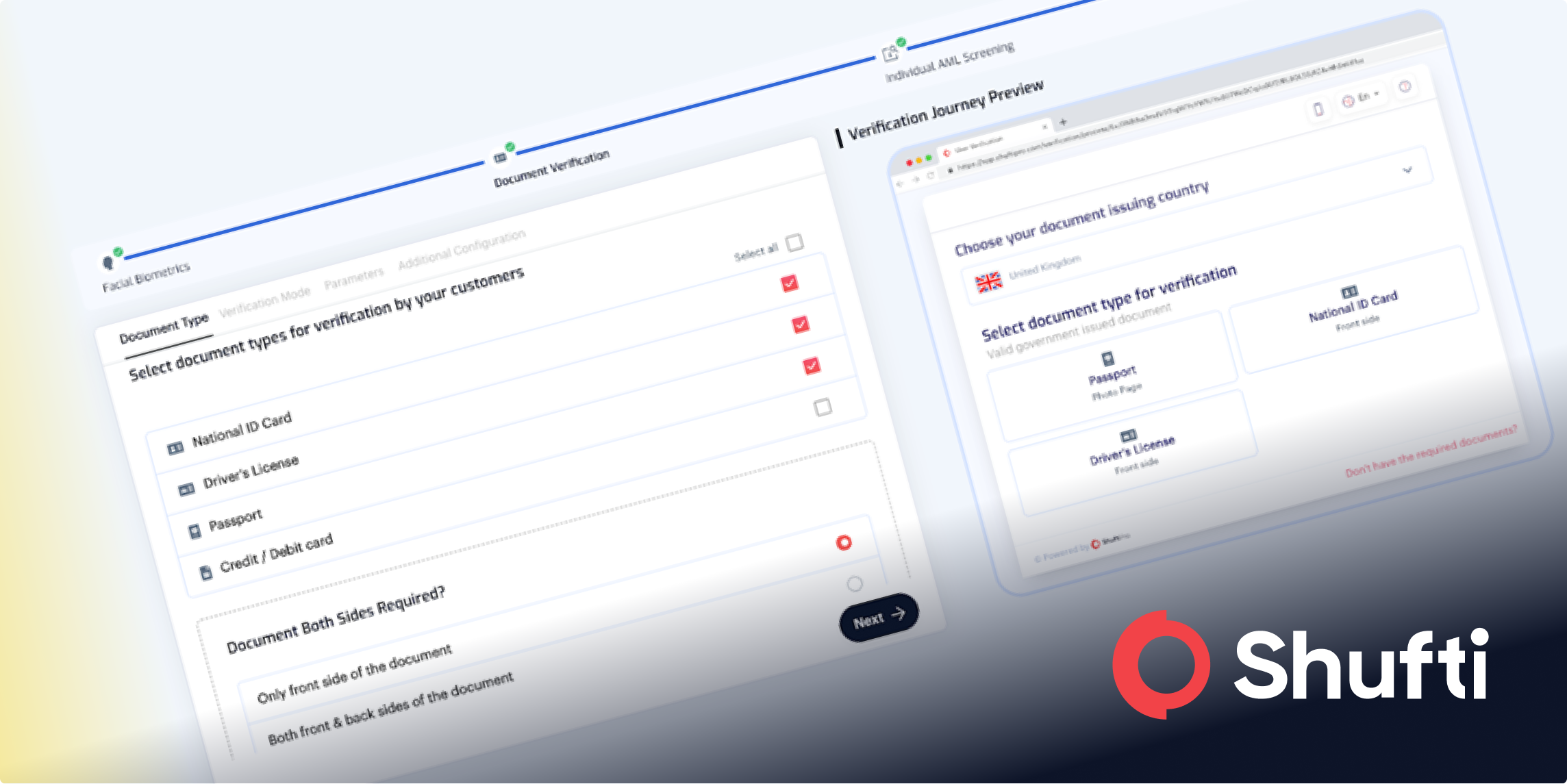 Explore More
Explore More
Blog
Deepfakes: AI Fraud Attacks Require Even Smarter AI Countermeasures. Now.
Verifying identities with advanced biometrics was already a challenge—then along came AI-generate...
 Explore More
Explore More
Blog
6 in 10 Leaders Aren’t Ready for Deepfake Fraud Threats
 Explore More
Explore More
Blog
UAE Government Stepping Up Against Prevalent Crimes
The UAE is known for being home to flourishing businesses and providing a significant level of fi...
 Explore More
Explore More
Blog
How Artificial Intelligence is taking ID verification to the next level?
Identity theft is deemed as a growing problem. Particularly with the increase in online shopping,...
 Explore More
Explore More
Blog
How Can Businesses Detect Arbitrage Sports Betting?
Various gamblers have investigated and exploited potential weaknesses in betting markets for mill...
 Explore More
Explore More
Blog
A Guide to Understanding KYC in Banking
2022 has witnessed a rise in the number of fraudulent cases by 18% compared to 2021, damaging bus...
 Explore More
Explore More
Biometric Technology, Blog
How Liveness Detection is an apt Answer for Facial Spoof Attacks?
The world went haywire on the launch of the new iPhone X; well, to be honest, when does it not? H...
 Explore More
Explore More
Blog
The Priorities – FinCEN Issues First Governmentwide AML/CFT Guidelines
What is the Goal of FinCEN’s AML/CFT Priorities?CorruptionCybercrimeFraudProliferation FinancingT...
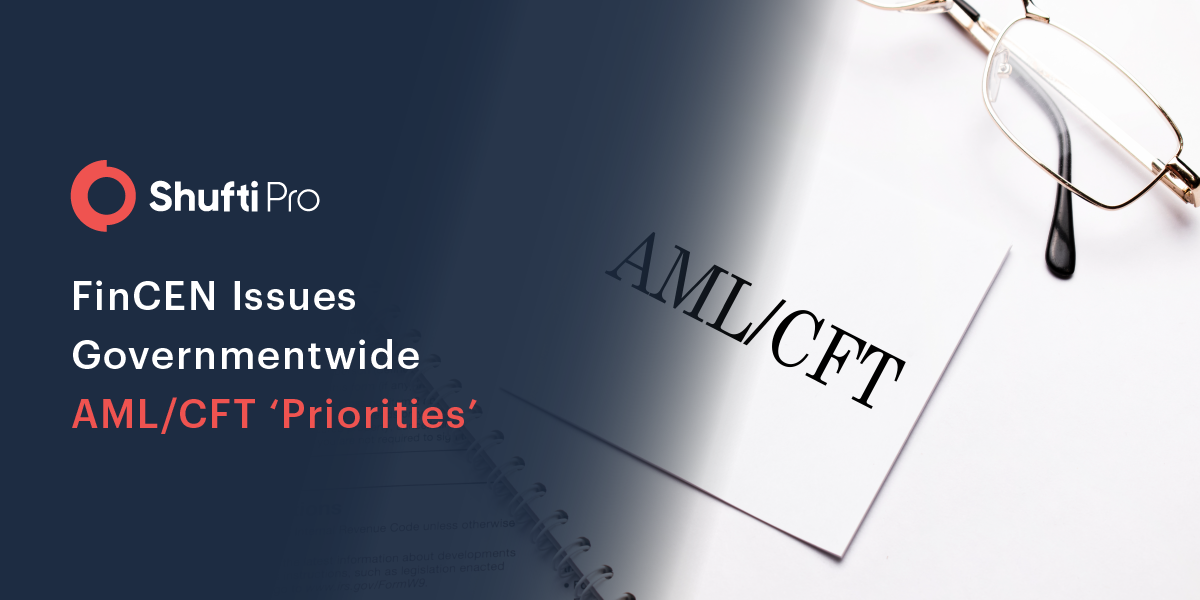 Explore More
Explore More
Blog
How Optical Character Recognition is Changing the Financial Industry
Banking and other financial services are the world’s most closely watched and strictly gove...
 Explore More
Explore More
Blog
A Brief Insight Into Anti-Money Laundering (AML) Regulations in Colombia
Money laundering has become a global issue, and almost all countries are facing this threat in va...
 Explore More
Explore More
Blog
A Brief Insight into Netherlands’ Cryptocurrency Regulations
Just like other European countries, the Netherlands is also a notable financial center making it ...
 Explore More
Explore More
Blog
Secure the Fintech Future with RegTech
Financial Technology (Fintech) refers to the use of technological advancements in the financial i...
 Explore More
Explore More
Blog
Top 10 AML Trends to Watch for in 2022
In 2021, the increasing scope of regulatory sanctions has affected businesses globally. The use o...
 Explore More
Explore More
Blog, Identity & KYC, Online Marketplace
Utilising Digital Identity Verification for Imparting Better Healthcare
The importance of patient identification and verification is crucial in the healthcare sector. Ac...
 Explore More
Explore More
Blog
Top 10 Biometric Technology Trends to Watch For in 2022
Biometric innovations in present times have manifested various technological advancements and the...
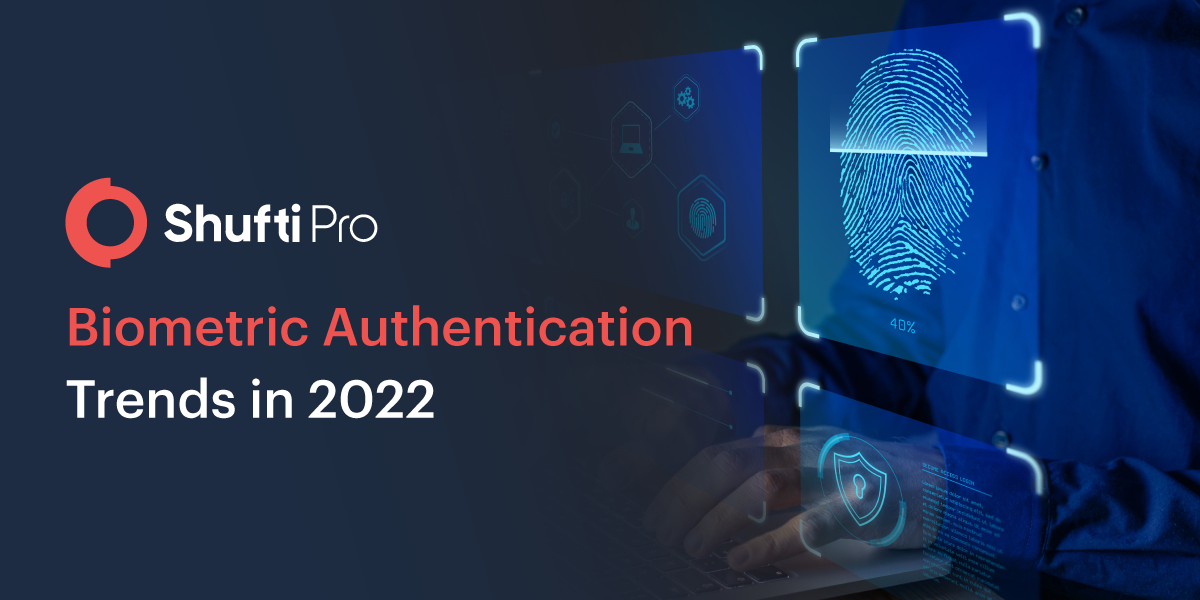 Explore More
Explore More
Blog
AML Compliance for Luxury Goods Market – How Shufti can Help
Money laundering using high-value goods such as jewelry, yachts, motor vehicles, watches, fine ar...
 Explore More
Explore More
Blog, Identity & KYC
GDPR versus Identity Verification – Are you Ready?
If you are an organisation that is based in the EU or are doing business with companies in the EU...
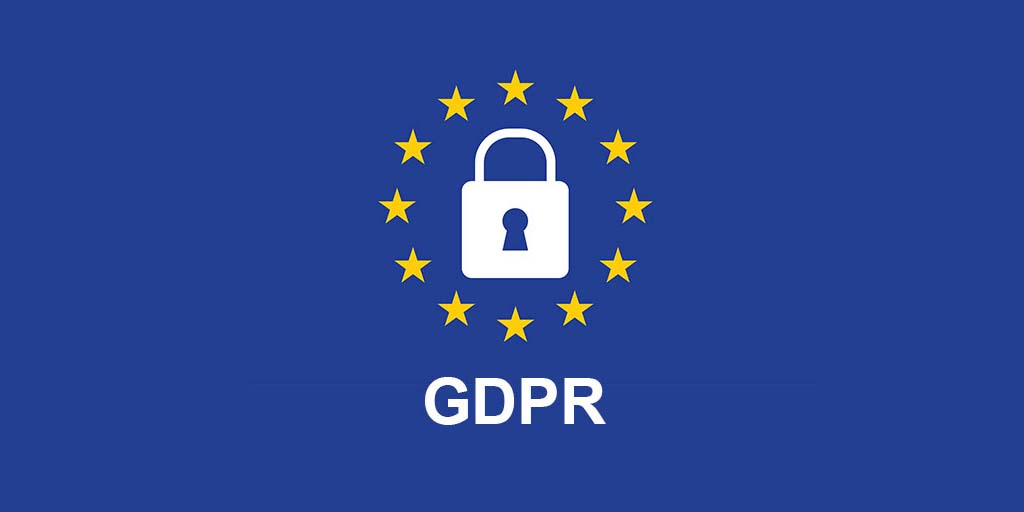 Explore More
Explore More
Blog
How Optical Character Recognition is Changing the Financial Industry
Banking and other financial services are the world’s most closely watched and strictly gove...
 Explore More
Explore More
Blog
Prevailing Crimes in Identity Verification – How Shufti’s Forensic Document Verification Can Help
Identity fraud has become quite prevalent in digital businesses which is not only affecting opera...
 Explore More
Explore More
Blog, Financial Crime / AML, Identity & KYC
Fighting Financial Crime: Why KYC and AML Compliance Is Essential for the Global Finance Sector
Banks and other financial institutions are often the first line of defense against financial crim...
 Explore More
Explore More
Blog
High-Risk Transactions – How Can Enhanced Due Diligence (EDD) Help?
In today’s continuously evolving world, businesses should not only focus on the revenue they gene...
 Explore More
Explore More
Blog, Business Technology
Fraud Prevention in Fintech Industry
The FinTech industry has really made its mark in the last couple of years. FinTechs have been pro...
 Explore More
Explore More
Blog
Open Banking Trends & the Vitality of Identity Verification
With rapid digitisation, open banking is becoming the new normal in the banking sector. Open bank...
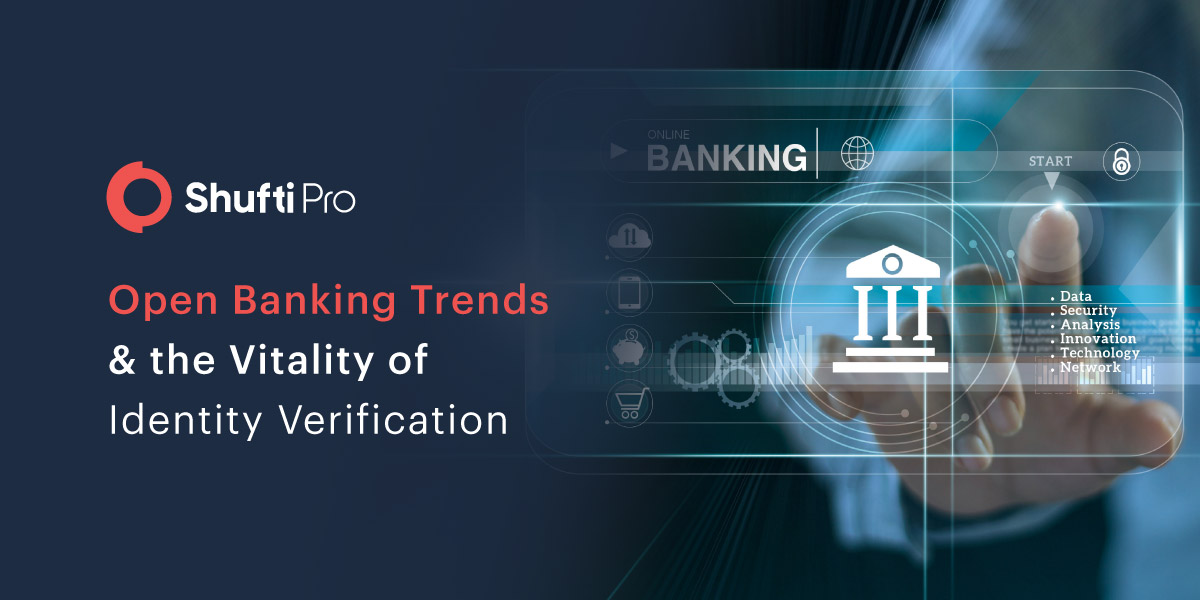 Explore More
Explore More
Blog
How FinTech can Leverage on FINMA Blockchain Initiative?
Swiss Financial Markets Supervisory Authority (FINMA) has taken a revolutionary step in the histo...
 Explore More
Explore More
Blog
Ensuring KYC/AML Compliance In Cryptocurrency Firms – The Role of Shufti
With emerging technologies in the financial industry, cryptocurrency is picking up the pace, and ...
 Explore More
Explore More
Blog, Financial Crime / AML, Fraud Prevention, Identity & KYC
The FinTech Industry: A Snapshot
What is FinTech?
Financial technology, known more commonly as FinTech, is a term that refers to t...
 Explore More
Explore More
Blog
The 5 Pillars of Anti-money Laundering Compliance
Imposters often “launder” money acquired through illegal activities, like drug trafficking, so th...
 Explore More
Explore More
Blog
Spreading Holiday Cheer with a Heartfelt Donation to Crisis UK
As the holiday season approaches, we often reflect on how we can give back to our communities. Th...
 Explore More
Explore More
Blog
Identity Verification: A Bulletproof Vest Against Sharing Economy Fraud
Over the previous year, you might have observed how the world has become increasingly dependent o...
 Explore More
Explore More
Blog
Strategic KYC/AML Checks for the Financial Industry – Staying a Step Ahead of Fraudsters
In recent times, the financial industry has witnessed significant technological changes which hav...
 Explore More
Explore More
Blog
KYC Compliance – Identity Verification for Brokerage Companies & Trading Platforms
Online trading platforms provide businesses with the convenience to keep an eye on financial mark...
 Explore More
Explore More
Blog
7 Ways to Protect Business and Remote Staff from Cybercriminals
Businesses are facing ‘new normal’ as the workplace has shifted from offices to homes amid corona...
 Explore More
Explore More
Blog
Need for Identity Verification in Real Estate and Its Real-World Use Cases
The real estate industry is in dire need of identity verification processes. The reason being, th...
 Explore More
Explore More
Blog, Financial Crime / AML
Impact of Canada’s Evolving AML Regimes on Your Business
Canada’s AML regulations changed a lot in 2019. More rigid AML regulations are imposed on all typ...
 Explore More
Explore More
Blog
Optical Character Recognition (OCR) – Powering Shufti’s Document Verification
Trust is a key factor when it comes to doing business or getting financial services from banks. A...
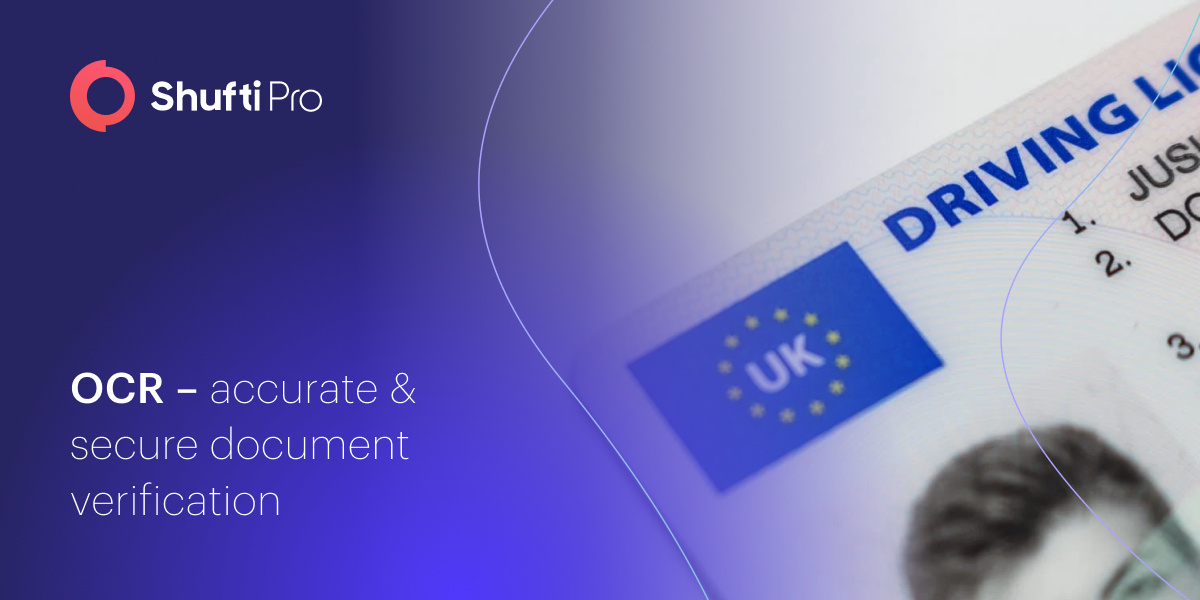 Explore More
Explore More
Blog
Rethinking Trust in Crypto: How Digital Identity Verification Will Power the Next Phase of Growth
The crypto industry is at a crossroads. After a decade marked by disruptive innovation and volati...
 Explore More
Explore More
Blog
Enhanced Due Diligence Checks | The Art of Mitigating Risks Associated with Third-Parties
For multinational businesses, reliance on external third-party vendors is crucial. However, failu...
 Explore More
Explore More

